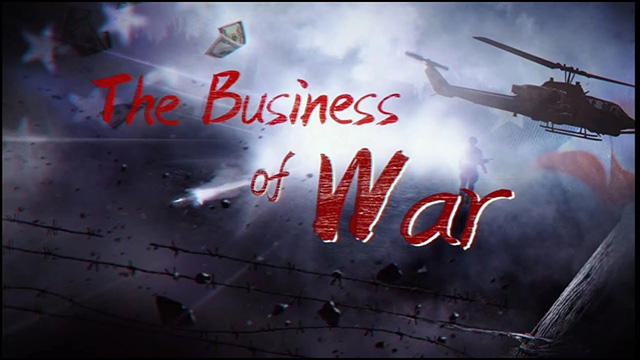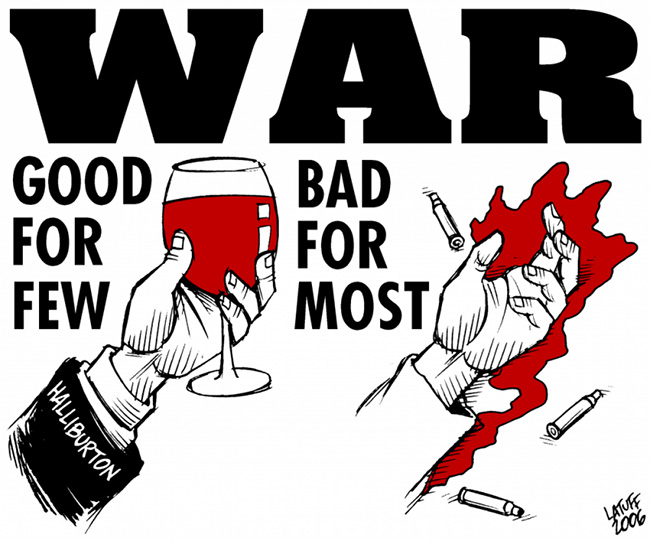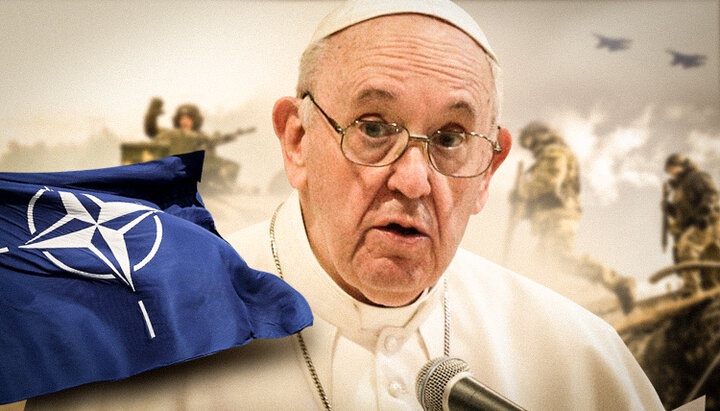
After his show at the United Nations, where he declared that “Russian aggression could expand beyond Ukraine,” Zelensky asked for more than a billion dollars from the US Congress. The Congress has so far allocated 43 billion in "assistance to the security of Ukraine", i.e. for direct military purposes, notes Manlio Dinucci, a geographer and journalist of Italian ‘Il manifesto’. Together with other funding, officially given for humanitarian purposes, which in reality serves the war, the actual amount provided by Washington to Kyiv well exceeds 70 billion dollars.
Now the White House has requested an additional $24 billion from Congress for Ukraine. Added to these are over 30 billion given to Kyiv by the European Union, plus tens of billions provided by Great Britain, Germany, Japan, Canada, Poland, Holland, Norway, Denmark, Sweden, France, and Italy.
This enormous flow of public money, coming from citizens' pockets, fuels what the New York Times calls "a clandestine arms market" in Ukraine. Billions of dollars ended up in the pockets of high-ranking officials in Kyiv, so much so that the government had to fire the Minister of Defence and all six deputy Defence Ministers for corruption. These corrupt people are actually the scapegoats of a much larger crime. President Zelensky himself has substantial shares (formally transferred to one of his partners) in three companies established in tax havens and has purchased luxury villas in various parts of the world (most recently in Egypt) for the sum of tens of millions of dollars.
The enormous military supplies that Ukraine receives from the United States and European powers are not a gift but given on credit. Ukraine has thus accumulated such a foreign debt that it would take centuries to repay it. This debt will grow further with the "reconstruction" that Zelensky has placed in the hands of the American BlackRock, the largest investment company in the world.
“The investment in Ukraine is paying off a lot for us, – US Democratic Senator Richard Blumenthal said, – We have united NATO. We have helped restore faith and trust in American leadership – moral and military. All without a single American soldier being injured or killed.”
“The fundamental reason for continuing to help Ukraine, – declares Mitch McConnell, leader of the Republican Group in the US Senate, – is cold, hard, and concrete American interests”.

The recent New York Times editorial (September 15) opposing negotiations between Ukraine and Russia was so hallucinatory it might have been written by an AI chatbot, notes Stephen F. Eisenman at ‘Counter Punch’.
“It is in America’s national interest,” the editorial writers state, “to lead its NATO allies in demonstrating that they will not tolerate Mr. Putin’s ambitions. It is a demonstration of America’s commitment to democracy and leadership that other would-be aggressors are watching.”
America’s commitment to democracy has always been tenuous at best. Our wealth was founded upon the enslavement of Africans and the expropriation of Indigenous land and resources. International power was derived from war and intervention, both military and economic. Even the U.S. system of voting, the crowning glory of our democracy, is badly compromised by an electoral college and gerrymandering. “Leadership” has generally meant bullying friends and enemies alike, or as Kissinger once said about South Vietnam: “Being America’s enemy may be dangerous, but being America’s friend is fatal.” Our enemies are often democratic and our allies repressive.
The only viable course, the Times editorial bot says, quoting Biden, “is to give Ukraine the weapons and resources to defend itself, so that when the time comes, it would be ‘in the strongest possible position at the negotiating table.’” In other words, negotiations will come after success on the battlefield. War is the precondition of peace.
The formula is a familiar American one. It was deployed successfully (but at exorbitant human cost) at Hiroshima and Nagasaki, but without result in Vietnam. In December 1972, Nixon pledged to bomb the North Vietnamese until they begged to return to the peace table. The U.S. military dropped more bombs on the North in 12 days than in the previous three years. We know how that war ended.
The New York Times editorial and opinion writers, with very few exceptions, support a continuation, and even sharp escalation of the war, with the U.S. and NATO sending more, and more-advanced weapons. They argue that a successful offensive will strengthen Ukraine’s position when the adversaries eventually begin negotiations. They further argue that the U.S. has no right to push Ukraine into talks until it is good and ready.
Winners in the war so far (a partial list):
Shell, ExxonMobil, BP, Chevron, Total Energies, Cheniere Energy, Wintershall (BASF), Boeing, Raytheon, BAE Systems, Northrop Grummon, General Dynamics, Honeywell, Bechtel, Rheinmetall, Lockheed Martin, Archer Daniels Midland, Bunge, Cargill, Louis Dreyfus, Goldman Sachs, SG Trend Indicator, Managed Futures Offshore fund, Diversified Aspect Capital, Applied Research Laboratory Europe, Bristol Trust, BlackRock, Frontline, and International Seaways…

Pope Francis (photo) suggested that some countries were "playing games" with Ukraine by first providing weapons and then considering backing out of their commitments.
Francis made his comments aboard the plane returning from a trip to the French port city of Marseilles. He was responding to a reporter's question about whether he was frustrated that his efforts to bring about peace had not succeeded. He has sent an envoy, Italian Cardinal Matteo Zuppi, to Kyiv, Moscow, Washington and Beijing to meet with leaders there.
He said he did feel "some frustration" and then began talking randomly about the arms industry and the war.
"It seems to me that the interests in this war are not just those related to the Ukrainian-Russian problem but to the sale of weapons, the commerce of weapons," he said.
"We should not play games with the martyrdom of this people. We have to help them resolve things... I see now that some countries are moving backwards, not wanting to give (Ukraine) arms," he said.
Asked for a clarification, Vatican spokesman Matteo Bruni said the pope was not taking a stand on whether countries should continue to send weapons to Ukraine or stop sending them.
"It was a reflection on the consequences of the arms industry: the pope, with a paradox, was saying that those who traffic in weapons never pay the consequences of their choices but leave them to be paid by people, like the Ukrainians, who have been martyred," Bruni said.
A number of countries, including the United States, face internal political pressure to stop or curtail spending on weapons sent to Ukraine.
read more in our Telegram-channel https://t.me/The_International_Affairs

 10:35 01.10.2023 •
10:35 01.10.2023 •






















